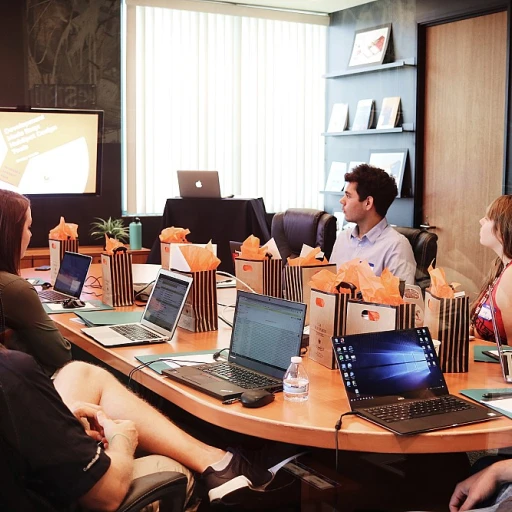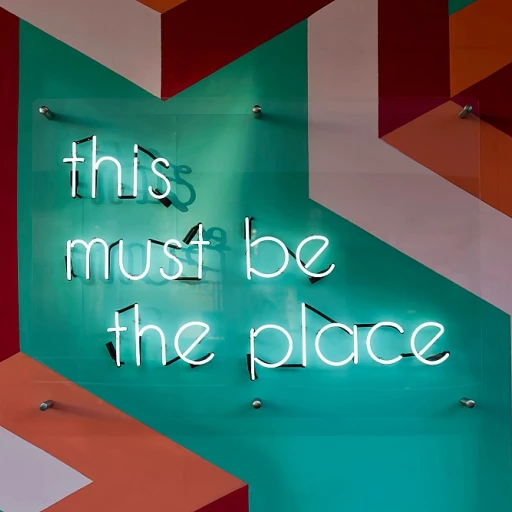
Understanding the Dislike for Traditional Work
Rediscovering Your Current Position
Many individuals find themselves in a job situation they dislike, yearning for a work environment that better aligns with their personal goals and mental health. When the daily grind turns into a cycle of dread, it's crucial to delve into the root of this job dislike. Are you feeling stuck in a position that doesn't offer the work-life balance you crave, or does the job simply fail to provide opportunities for personal growth? Understanding these aspects of your current job can help pave the way for meaningful change.
The modern work environment has evolved significantly, yet traditional employment remains predominant. Many people, like you, may feel trapped in jobs that don’t resonate with their aspirations. You might hate your job today, but this can be the catalyst for exploring diverse employment opportunities that align better with your skills and passions. Identifying why you dislike your current position is the crucial first step towards a fulfilling career change.
Recognize that it’s okay to feel this way; you're not alone in this journey. Often, people work in environments that demand long hours with little reward, and the cumulative effect is a career that doesn’t feel like a meaningful part of their lives. This juncture is when individuals typically look for actionable coping strategies and consider new career paths. With time, exploring freelancing or remote work options can help achieve a more balanced professional life, if traditional work isn’t satisfying your needs.
Let this time be a period of reflection and planning. Consider creating an action plan that addresses your feelings. It's about acknowledging your dislikes and transforming them into opportunities for career transition. This process can guide you towards a job that not only matches your career ambitions but also enriches your life. Ultimately, this introspection could lead to embracing opportunities that foster both professional satisfaction and life balance.
Identifying Skills and Passions
Discovering Your Unique Blend of Skills and Interests
Understanding your skills and passions is crucial when considering a move away from traditional job environments. Many people feel stuck in jobs they don't like, possibly due to misalignments between their skill sets and the demands of these roles. Recognizing these mismatches can act as a prompting factor for change. To begin this discovery, reflect on your past work and life experiences, noting times when you felt engaged and inspired. Ask yourself questions such as:- Which tasks at your current job do you enjoy the most, and why?
- Are there any activities outside of work that bring you joy and fulfillment, and how do they relate to your professional life?
- What are your inherent strengths, and how can they be utilized in a career change?
Exploring Non-Traditional Career Paths
Unconventional Career Journeys
For many who feel stuck in traditional work, the possibility of exploring career paths that break away from the norm might be the key to unlocking a new passion in their professional life. In an age where people work under varied conditions and seek a balanced life, it’s essential to consider uncharted territories. One of the main roots of job dissatisfaction comes from a misalignment between personal growth aspirations and the limitations of a current job. If you find yourself saying, "I hate my job," it’s time to explore options that those who've undergone significant career change have successfully explored. People who dislike the constraints of typical nine-to-five jobs might find satisfaction in less traditional settings. These non-traditional career paths sometimes involve roles that mesh well with long term goals, offering more flexibility and input into one’s workday. Here are some options that might help you work towards a revamped professional life:- Consultancy: Sharing your expertise in a freelance or contract capacity can lead to fulfilling work without the restraints of a full-time position. This path allows for greater autonomy and time management, a crucial aspect if you hate job environments lacking freedom.
- Startups: Working with a startup can be invigorating for those who crave dynamic day-to-day changes in their job feel. Being part of a growing team often offers diverse roles and responsibilities that can pivot with the organization’s needs.
- Creative Freelancing: Individuals with creative skills can explore platforms that don job markets with suitable gigs in writing, design, and arts. This sector thrives on flexibility and allows you the chance to work remotely.
- Green Careers: If environmental concerns are at the forefront of your life balance goals, consider venturing into sustainability sectors. The growing demand for green jobs provides various opportunities to align your professional work with personal ethics.
Freelancing and Gig Economy Opportunities
Freelancing as a Path to Independence
For those who feel stuck in a traditional job they dislike, freelancing can offer a significant change. This work life choice offers flexibility, autonomy, and the chance to balance personal and professional goals effectively. The gig economy has expanded exponentially in recent years, providing ample opportunities for those seeking a career change. Freelancing allows individuals to focus on tasks that align with their passions and skills, aiding in personal growth and long-term life fulfillment.
Benefits of Freelancing
- Flexibility: You're in charge of your schedule, allowing you to skip main office hours and find a routine that suits your life balance.
- Diverse Work Opportunities: Freelancing enables individuals to explore various career paths without being bound by one job or role.
- Increased Control: You choose the projects you work on, helping reduce job hate and improving mental health by avoiding tasks you dislike or that don't inspire you.
- Income Potential: Unlike traditional jobs where salary is fixed, freelancing allows individuals to determine their earning potential based on effort and opportunities available.
Navigating the Gig Economy
Stepping into a freelance career comes with its challenges. Developing effective coping strategies is key to maintaining a steady income stream and adapting to fluctuating workloads. People work differently in this environment — some thrive with the change, while others need systematic adjustments to fully embrace this work life.
An action plan is crucial for success. Setting clear goals, honing skills specific to your freelance niche, and maintaining a network of contacts can create a stable foundation. Platforms that connect freelancers with clients play a vital role in creating professional opportunities and should be leveraged for maximum advantage.
Realizing the Shift
Incorporating freelancing into your professional life can serve not only as a means to escape a job you hate but also as a conduit for consistent personal and financial growth. This shift requires commitment, yet it offers the freedom to mold your career journey in a way that a traditional job doesn't. If you hate job constraints and yearn for an experience that aligns better with your personal values, freelancing might just be the root of your new career path.
Remote Work and Digital Nomadism
Remote Work and Digital Nomad Lifestyles
In today’s evolving job marketplace, more people are embracing remote work and the digital nomad lifestyle. This shift can be especially appealing if you find yourself feeling stuck in a job you dislike. Remote work offers the chance to redefine your work life balance, often leading to improved personal growth and mental health benefits. By cutting down on commutes and skipping the traditional office setting, you can gain more time to focus on things that truly matter in your long-term career path.
For many, remote work can bring an element of flexibility that traditional jobs cannot. Whether you're a parent seeking to spend more quality time with your children, or simply someone looking to explore new job opportunities while traveling, remote work can provide that freedom. The root of dissatisfaction with office jobs often lies in a lack of autonomy and the rigid schedules imposed upon workers. Embracing a remote career can help mitigate those feelings and lead to a more fulfilling professional life.
To effectively transition into remote work, consider the following coping strategies and action plans:
- Identify Remote-Friendly Skills: Assess your current skills and determine which can be effectively utilized in a remote work environment. These skills might include digital literacy, communication, and self-management.
- Create a Home Office: Designate a specific area in your home for work. This will help you maintain a boundary between your personal life and job commitments.
- Research Potential Employers: Focus on companies that are known for supporting remote work. This research could include reading employee reviews or visiting company websites directly.
- Network Online: Utilize social media platforms and professional forums to connect with individuals already thriving in remote jobs. Their insights can be invaluable in your career change process.
- Develop a Routine: Establish a daily schedule that incorporates work tasks and personal activities, helping maintain productivity and life balance.
Ultimately, the transition to remote work can represent a significant change in your professional journey, offering new avenues to escape the job aspects you hate. By proactively taking these steps, you can help find a work setting that meets your life goals and enhances your overall happiness.
Strategies for a Successful Career Transition
Preparing for the Leap: Steps to Transition to a New Career
Making a successful career transition can be overwhelming, especially when you have a strong dislike for traditional work settings. It's crucial to have a strategic approach that aligns with your skills, passions, and personal growth goals. Here's how to make the process smoother:- Self-Assessment and Planning: Start by identifying the root causes of your dislike for your current job and traditional work environments. What aspects of your job do you hate? Is it the work-life imbalance or the administrative tasks that don feel fulfilling? Recognizing these elements will help you focus on roles that align better with your professional values.
- Skill Development and Learning: As you've identified skills and passions in the earlier parts, invest time in enhancing those abilities. Whether it’s a freelance gig, remote job, or a completely different career path, ensure that your skill set matches the demands of your new field. You can also seek workshops or online courses that provide new skills that boost your confidence as you prepare for the career change.
- Networking and Mentorship: Connecting with people who have successfully undergone a career change can be invaluable. They can offer insights into overcoming the challenges of leaving a job you feel stuck in, and provide advice on entering different career paths. Additionally, mentors can offer coping strategies to maintain your mental health as you navigate this transition.
- Creating an Action Plan: Develop a clear, step-by-step action plan. Set realistic, long-term goals that define what you want out of your new career and set a timeline. This could range from updating your resume, applying to specific jobs, to gaining certification in relevant fields. Ensure that each step contributes to your professional life without overwhelming your day-to-day activities.
- Embrace Flexibility: Transitioning from a job you hate can feel daunting, but staying flexible is key. Be open to exploring non-traditional career paths such as freelancing, the gig economy, or pursuing remote work that allows you to become a digital nomad. These aren’t just trends; they are viable options for those seeking a more balanced life work routine.













